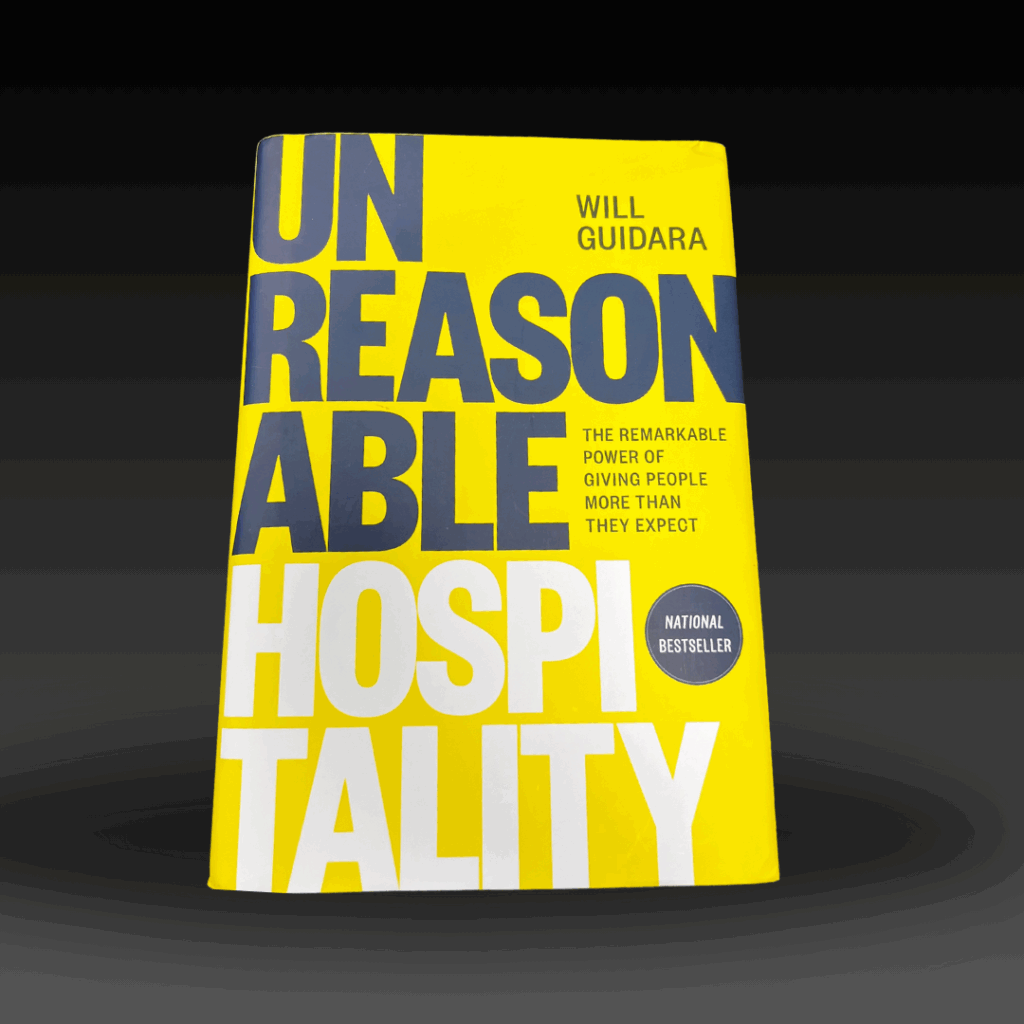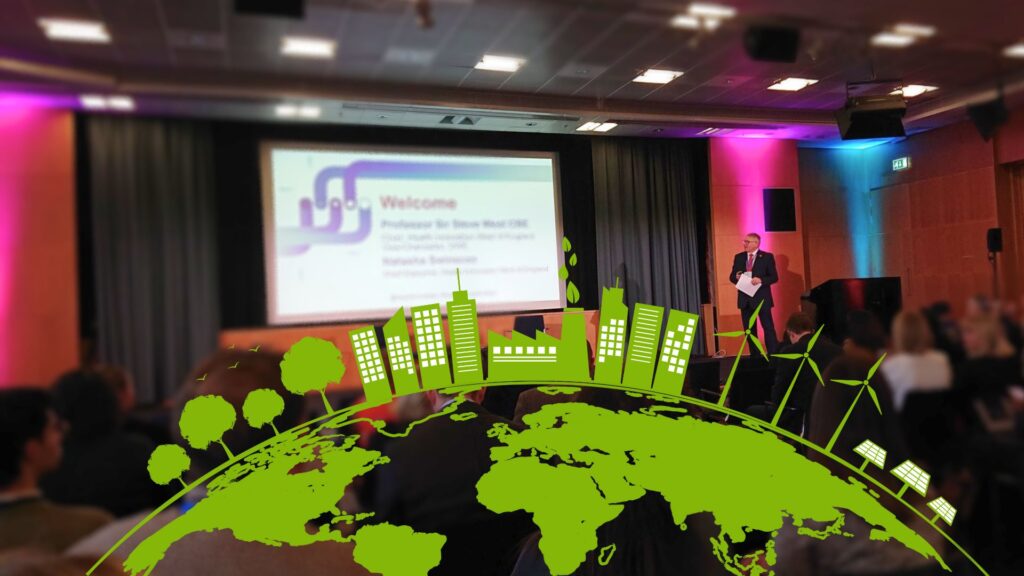It’s likely you’ve heard the phrase “Net Zero by 2050”. Let’s explore what this means for the event industry and how carbon neutral events can help us reach Net Zero.
Net zero simply means cutting greenhouse gas emissions to as close to zero as possible, with any remaining emissions re-absorbed from the atmosphere, by oceans and forests for instance.
United Nations
Why is net zero important?
Science shows clearly that in order to avert the worst impacts of climate change and preserve a planet that we can live on, global temperature increase needs to be limited to 1.5°C above pre-industrial levels [pre-19th Century].
Currently, the Earth is already about 1.1°C warmer than it was in the late 1800s. Emissions are continuing to rise. The Paris Agreement calls for global warming to no more than 1.5°C, and emissions need to be reduced by 45% by 2030 and reach net zero by 2050.
How can net zero be achieved?
Transitioning to a net-zero world is one of the greatest challenges humans face. We need a complete transformation of how we produce, consume, and travel. The energy sector is the source of around three-quarters of greenhouse gas emissions and can be key to averting the worst effects of climate change. Replacing polluting coal, gas and oil-fired power with energy from renewable sources, such as wind or solar, would dramatically reduce carbon emissions. [Source: United Nations]
So what is carbon neutral?
Carbon neutral means whatever activity you are undertaking, in this case for producing events, you are not putting any more carbon into the atmosphere than you are taking out.
When you carbon offset, you compensate for your emissions by funding an equivalent carbon dioxide saving elsewhere in the world. You can purchase carbon credits from a scheme that works to reduce or absorb carbon emissions. These can fund projects that provide lower carbon alternatives, such as cookstoves to replace open fires. Or they might protect and enhancing natural resources that absorb carbon from the atmosphere, such as reforestation initiatives.
How is carbon neutral relevant to events?
The events industry is a big user of carbon, from catering to venues, powering of hotels and venue, transport of speakers, delegates and kit, the emissions from one event can have a big impact.
The UK events industry is estimated to emit 1.2 million tonnes of carbon every year from the use of diesel generators alone. That’s the equivalent to adding 220,000 cars to the road every day. [Source: https://issuu.com/hopesolutionsservices/docs/uk_events_and_diesel_use_factsheet]
If your aim is to create a carbon neutral event, first you have to plan. Then you’ll need to measure and finally offset. Large, international events may want to work with an internationally recognised carbon neutral standard such as British Standard PAS2060.
There’s a lot of talk around offsetting carbon. It’s better for the planet not to put the carbon into the atmosphere in the first place, rather than releasing it and offsetting it. Carbon reduction should be the first aim, and then if that’s not possible, carbon offset for the essential carbon you have to use.
Carbon neutral events need a 3-step process:
Plan, Measure, Offset
1. Plan
Designing a carbon neutral event needs to happen right from the start, right at the planning stage. We know that planning and preparation make for a smooth and successful event and this is the same with carbon neutral. Plan for every aspect of your event and look at the impact it is going to have before you even start.
2. Measure
You will need to measure your carbon output to make sure you can reach carbon neutral. You can use a carbon calculator such as: http://meetgreen.com/products/meetgreen-calculator/
3. Offset : How do you mitigate?
Invest in projects which encourage the storing of carbon (reforestation, carbon-sink projects, replacing high carbon emitting fuel-burning stoves, used across the developing world with more efficient, less carbon emitting stoves) organisations like Ecologi can help you find projects.
There are some great examples of big events that have committed to Carbon Neutral.

Glastonbury has a history rooted in activism, a rural heritage and they are committed to creating a cleaner, more fair, sustainable future for all. They have outlined all their action on their website which includes clean energy, reducing transport of water, waste and produce to the festival and even encourages people who are watching on TV to participate.

Coldplay have committed to making their Music of Spheres tour sustainable and low carbon as possible by: reducing emissions by 50%, support new green technologies and super low carbon touring methods, and funding nature and tech based policies and draw down more carbon than is used

F1 Formula 1 has pledged to make all grand prix fully sustainable by 2025 and to go carbon neutral by 2030 by first reducing their emissions and then offsetting any emissions they cannot avoid.
The events industry is aware of the impact events have and have set up Isla: a non-profit organisation founded by event professionals and industry leaders focusing on a sustainable future for events, with measurement tools and resources for the industry.
What do we do at Autumn Live?
At Autumn Live we support Ecologi – we compensate our carbon footprint by funding climate projects and setting ourselves eco goals. We have been doing this for 12 months and how much we donate connects to the number of staff we have.
Top Tips to make your event have less impact on the planet:
- Travel by public transport
- Ban single use plastic
- Choose venues and suppliers that use renewable energy and recycle
- Reduce food waste and emissions (make your event vegetarian or vegan)
- Encourage participants (contractors, speakers, delegates, exhibitors) to reduce their carbon footprint
- Digitalise (communications/incentives & giveaways/contact post event – reduce literature









